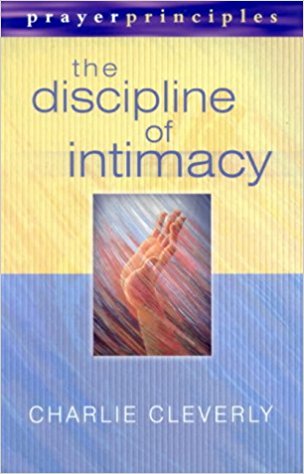News of church growth in Iraqi Kurdistan.
It is not making news headlines here in the UK, but there is a growth of believers in Christ Jesus in Kurdistan. They are getting saved from Islam in the wake of the withdrawal of ISIS.
Below is a collection of reports from personal contacts who have visited the area and comments from believers there. The aim is to encourage believers in the West to think of these brothers and sisters in Christ and hold them in prayer as they struggle in difficult circumstances, often facing persecution and hardship.
They are so very gracious and encouraging in their communications - they need encouragement and whatever support we can give.
In Yeshua,
Peter Adams
The Untenable Situation of the Nineveh Plains Christians
Iraq is split into three general areas: Kurdistan in the north, Sunni Islam in the centre-north of Baghdad, and Shi’a Islam in the south.
The Nineveh Plains of central Iraq are the biblical areas where the Prophets Jonah and Nahum preached. Jonah gave them the besorah (news) and they repented and turned to the God of Israel. 150 years later, Nahum brought news of impending judgment from God. They had, in that short time, turned away from him.
However, Christian societies have survived in this same area for 2,000 years. Those who remain today are facing an existential threat. Their future literally hangs in the balance.
ISIS has all but decimated Christian towns like Qaraqosh and Bartella. I’ve seen their disastrous conditions. There is little or no support from central Government. The powerful Orthodox priests (think of the Jewish priesthood of Yeshua’s day) managed to undermine and ruin the help that was promised by Franklin Graham’s Samaritans Purse. They could have had 500 homes repaired and made habitable, but Evangelical help is not wanted by these men - they’d rather the people suffer.
There is a growth of believers in Christ Jesus in Kurdistan, getting saved out of Islam.
The latest attempt to undermine the demography of the Christian town of Qaraqosh, which has a massive cross at the city entrance that can be seen from miles around, is to infuse Shi’a students into its Christian college. Incredibly, these students are now angered because there is no accommodation for them in town! Meanwhile, 1,000 Christian refugee families returning to the area are themselves desperately trying to repair homes so as to settle down, after three to four years away living in camps.
 These people, like my friend RS, need our prayers more than ever before. They are fighting what seems like a losing battle, but for their hope and faith in Yeshua. I do not know how they continue, how they even have the zeal to fight on. But what alternatives do they have? Christians are not welcomed into Europe and America - only Muslims. Such is the skewed world in which we live.
These people, like my friend RS, need our prayers more than ever before. They are fighting what seems like a losing battle, but for their hope and faith in Yeshua. I do not know how they continue, how they even have the zeal to fight on. But what alternatives do they have? Christians are not welcomed into Europe and America - only Muslims. Such is the skewed world in which we live.
Surely God is coming swiftly and his recompense is with Yeshua, who will wage a ferocious war against his enemies - even these who are destroying the lives of his children.
Thank you father for having a godly heart for the people and the new believers in Kurdistan. It’s true, our area is under threats and [there has been] a hard situation of the economy recently. Please, whenever you guys give help…to the people in Kurdistan, at first pray about it for the families for…grace, peace and [that] hearts would be soft. (HK)
Great Numbers Departing from Islam
I am reliably told that many, many Muslims are departing from Islam in Kurdistan and Iraq. Although they still go to mosque and play the part out of fear, they are no longer practising their faith. This is an indication that the ‘prince of power of the air’ (Eph 2:1-2) is to some degree being challenged.
Yes my father, many Muslims leave Islam. I was a Muslim 5 years ago…I believed in Jesus Christ… (XS)
Many are simply becoming atheists, while others are turning to Christianity. This has been driven by a realisation that the god of ISIS is no god worth following. Attending the mosque has become perfunctory, a way to not draw attention to themselves.
This does not mean all are coming to faith in Yeshua, but it does mean the grip satan has had in these areas is loosening. And in this atmosphere, Kurds in particular are being saved.
These people need our prayers more than ever before. They are fighting what seems like a losing battle, but for their hope and faith in Yeshua.
Meanwhile, the example being set by Christians in the West is no help to these new believers. “It does not inspire Muslims to come to Messiah”, ZH said. “We are coming to Yeshua because of direct revelation from God, reading the Bible and seeing our fellow Muslims in the face of persecution willing to leave Islam to follow Jesus”.
Another commented: “The strength of Islam is the weakness of so-called Christianity in the West...we are bending over backwards to please everybody except Jesus Christ, instead of living to the Glory of the One and Only God the Father.”
Revelations of Jesus
Nevertheless, the Spirit of God is at work in Iraq – for which we need to rejoice! Yeshua, the great revelation of God to man (which the Allah of Islam is incapable of producing), has been causing many Muslims to lose hope in Islam. As they understand and grasp the Judeo-Christian message they are filled with hope.
And the fact that Yeshua suffered persecution gives them greater strength to endure their difficult conditions. It is a motivation to live for him and not to fear any coming tribulation. They are not forsaken, they sense His presence, and KNOW His peace.
 A message from XS in Kurdistan who has left Islam:
A message from XS in Kurdistan who has left Islam:
A God who cannot reveal Himself is not a god…Thanks be to God, the faith is much stronger because God created us in His image. And he revealed [himself in] human flesh to let us not have any doubts about Him...! …that’s the reason we are feeling so pleased because Jesus has been persecuted before each of us, and this persecution is [bearable for] us for the sake of His name.
Others are coming to faith as they see the steadfastness of the believers who have counted the huge cost of leaving Islam. This is truly different from our Western idea of people coming to Jesus to see what they can get out of him. But coming to the Lord is not a formula to a better lifestyle. The reality is that most Christians who come to Yeshua in earnestness find themselves literally surrounded by problems.
Our brothers in Kurdistan see the life of a believer quite differently. They see Yeshua walking beside them in the midst of their storms. This is the type of faith that draws unbelieving Muslims to Yeshua. They are not coming for a better lifestyle; they are coming because he is the only hope we have in this life. A new lifestyle, or a new life? There is a huge, huge difference.
New Death Threats for Kurdish Believers
Recently I had a video call to Christian friends in Kurdistan who I visited a couple of months ago. They have bad news concerning their safety, yet in this darkness there is the encouragement of seeing the light of new believers coming to faith.
After a recent distribution to Muslim widows and mothers who lost sons fighting ISIS, they’ve received death threats. This has unfortunately meant they have had to leave their homes for the safety of Irbil. Quite incredibly, in the midst of these tribulations, they are seeing Muslims come to faith. Another two men have come to believe in Yeshua in these last days.
It seems almost bizarre that while we in the West are busy discussing and debating the rapture, and whether Christians are due to go through tribulation, our brothers are faced with some very trying and testing times. Consider the domestic difficulties on top of this, with some spouses not being saved and the pressure on these marriages.
While we in the West are busy discussing and debating the rapture, and whether Christians are due to go through tribulation, our brothers are faced with some very trying and testing times.
Apart from this, they have the looming political spectre of Iran hanging over them, barely half an hour away. Iran is pushing to have a crescent running from ancient Persia through Iraqi Kurdistan, Syria and Lebanon opening the way to the Mediterranean Sea. And of course poised to take Israel from her northern border.
Thankfully we have the scriptures full of exhortation to those enduring hardships and living under an anti-Christ system already. These are two we discussed recently:
They will make you outcasts from the synagogue, but an hour is coming for everyone who kills you to think that he is offering service to God. (John 16:2)
While the context John speaks about is Judaism, exactly the same applies to those put out of the mosques. The Mullahs have been speaking about our brethren and their need to be put to death.
…strengthening the souls of the disciples, encouraging them to continue in the faith, and saying, ‘Through many tribulations we must enter the kingdom of God’. (Acts 14:22)
Paul gives further warning here that followers of Yeshua must not expect to enter the Kingdom any other way than by tribulation.
I ask you who care to please pray for them. And those already praying, please continue praying the Lord’s protection over them and their families. These people do not have other Christians to look to for guidance and support. They are in desperate need of our prayers and have asked that I convey their deep appreciation for our love and concern towards them.
Points for prayer:
- Please pray for Muslims departing from Islam in Kurdistan and Iraq: that the Spirit of our Lord God may draw them to himself, and that they do not stay in a spiritual vacuum, only for it to be filled by something else. Our prayers can be influential in the redemption of these people, for whom Yeshua died.
- Please pray for the believers in Kurdistan who have left Islam - that they continue in this new faith in Yeshua the Messiah.
Point for action:
There are some believers in Kurdistan who cannot afford kerosene for their heaters, and those in Soran and Irbil also need food support through the winter. Temperatures drop below freezing and I am planning to send some money to my contacts there who will see it gets into the right hands.
If anyone has a desire to help, any amount will be greatly appreciated. It would not take much for us believers to make a huge difference in their lives of our Kurdish brethren this winter over a three-month period.
If you would like to contribute, please make a direct payment to Prophecy Today (details below) and include the instruction ‘Kurdistan’ – we will collect the gifts and send them directly.
Bank transfer details: Prophecy Today Ltd / Account Number: 19560260 / Sort Code: 77-66-03
Editorial note: These reports were received via email and have been edited slightly and anonymised for publication. The content remains unchanged. Names of believers have been abbreviated for their protection.







